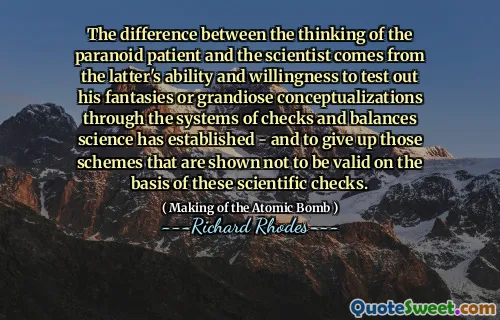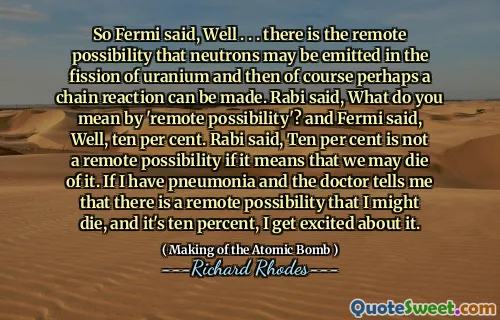"The Making of the Atomic Bomb" is a comprehensive historical account written by Richard Rhodes that explores the development of nuclear weapons during the World War II era. The book details the scientific breakthroughs, intense rivalries, and collaborative efforts among scientists who contributed to the Manhattan Project, including prominent figures like J. Robert Oppenheimer and Enrico Fermi. Rhodes delves into the complex moral and ethical implications of creating such a powerful weapon.
The narrative spans from the early 20th century's fundamental discoveries in physics to the eventual explosion of atomic bombs over Hiroshima and Nagasaki. Rhodes meticulously recounts events leading up to the bomb's creation, showcasing the political pressures and the urgency that characterized this pivotal moment in history. He emphasizes how the convergence of scientific advancement and wartime necessity transformed global power structures.
Rhodes also reflects on the long-term consequences of the atomic bomb’s usage, including the onset of the Cold War and the ongoing debate about nuclear proliferation. The book not only focuses on the technical aspects of bomb-making but also addresses the profound questions surrounding human responsibility and the quest for peace in a nuclear age. Through detailed research and compelling storytelling, "The Making of the Atomic Bomb" remains an essential text for understanding the complexities of modern warfare and international relations.
More »
Today Birthdays
1919 -
J. D. Salinger
1974 -
Ally Carter
1879 -
E. M. Forster
1968 -
Mark Lawrence
1839 -
Ouida
1958 -
Hamza Yusuf
1924 -
Charlie Munger
1897 -
Catherine Drinker Bowen
1940 -
Leonard Susskind
1767 -
Maria Edgeworth
1915 -
John Henrik Clarke
1864 -
Alfred Stieglitz
1863 -
Pierre de Coubertin
1716 -
William Wycherley
1874 -
Frank Knox
1956 -
Christine Lagarde
1972 -
Asghar Farhadi
1934 -
Lakhdar Brahimi
1953 -
Gary Johnson
1973 -
Saffron Burrows
1968 -
Cat Cora
1966 -
Ivica Dacic
1975 -
Ayman Odeh
1745 -
Anthony Wayne
1940 -
Frank Langella
1947 -
Jon Corzine
1895 -
J. Edgar Hoover
1922 -
Fritz Hollings
1826 -
Robert Rainy
1963 -
Laura Ingraham

